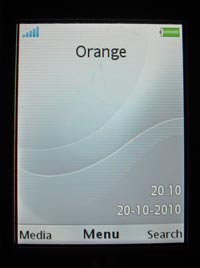I was in W.H.Smiths in Aylesbury glancing through the rows of magazines, half interested in whether there were any new interesting running magazines out. Running is one of those basic skills that seems so intrinsic, that if you’ve just started casually jogging, you wonder how on earth one magazine can find enough angles for articles let alone half a dozen or so — er, you put one foot in front of the other and then put the other one in front of that and…
…but there’s a surprising amount to learn about running, especially if you get into more serious racing — nutrition, clothing, shoes, injuries, health and so on. I’ve done quite a few races at the behest of my much fitter CAMRA friend Simon but I’m still generally far too fat to do a good time. I managed the Winslow 10k a few weeks ago and will be pounding the streets and lanes of Prestwood and Marlow in May and hoping to drag myself around the Wycombe Half Marathon course in July.
I looked in the sports section for the running magazines — but they weren’t among the football or rugby or cricket or whatever titles. I found them opposite, right next to the burgeoning tattoo and body art section (see photo below).

The retailers probably do some research about where to locate the magazines on their shelves — there’s a whole science to placing products optimally — so I wondered what the link between running and tattooing was. I guess it’s probably pretty obvious — it’s about a pro-active attitude to body image to a large extent.
Whereas the football magazines (and certainly the back pages of the tabloids) are often read by lazy lard buckets, it’s fairly doubtful whether there are any passive readers of running magazines — they’re all trying to get fit and improve (or maintain) the way they look. The same must go for fans of tattooing and piercing — that’s all about enhancing their appearance in a different way. And there’s probably a fair amount of overlap between the two — the people in the body-art magazines generally look after themselves. I suppose there’s not much point in spending a lot of money having a tattoo over your stomach, buttocks or other body parts that get bigger if you don’t look after yourself if it expands the artwork in random directions.
I was a bit intrigued about the type of magazines placed under the tattooing titles. I know there’s a lot of metalwork involved in body piercing but woodworker?

